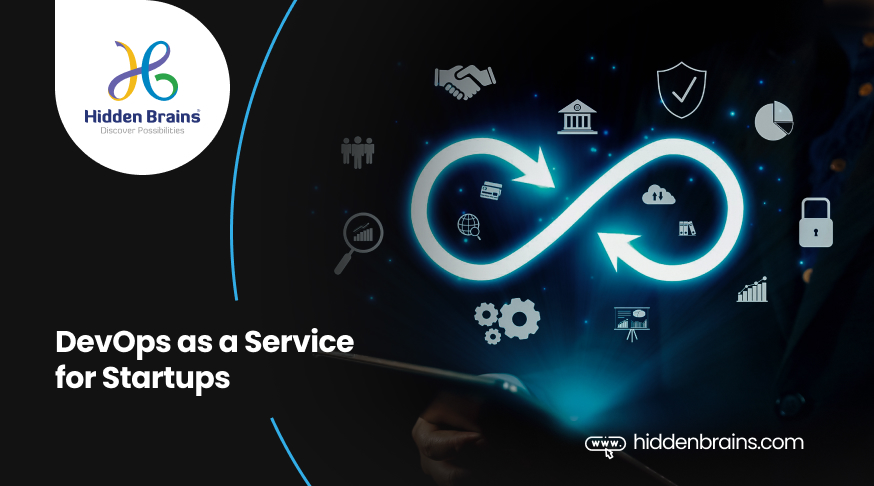Quick Summary
Cloud, Big Data, and DevOps aren’t just tech trends; they’re the backbone of modern enterprise growth. From faster releases to smarter insights, businesses are using these three powerhouses to innovate, scale, and stay competitive in real time. The future belongs to those who connect agility with intelligence, and that’s exactly what this trio delivers.
Digital transformation is a process of integrating the latest technology to ensure maximum efficiency and competitiveness of existing workflows. Cloud development services, DevOps, and Big Data make it happen. It’s natural for the technology companies to utilize the top-notch tools and practices, as this is the only way to remain competitive for them. Cloud services and solutions will provide robust and digital infrastructure of cities of future. It is estimated nearly 6 billion of the world’s population will live by 2045.
Cloud will make cities safer and more connected with smart elevators, driverless cars and drone, and much more. This ability to create a connected ecosystem is attributed to the cloud’s ability to store and analyze data. The cloud will be a beacon of transformation for companies as data analytics, artificial intelligence and other capabilities become available as services. Companies who are looking to adopt the latest trends are quick to adopt DevOps solutions and services & cloud technology to reap the benefits of becoming data-driven.
While the cloud development services are far from a new idea, its true capabilities are only now beginning to be realized.
Here are Statistics that show importance of Cloud Services
- 83% of Enterprise Workloads Will Be In The Cloud By 2020.
- 41% of enterprise workloads will be run on public cloud platforms (Amazon AWS, Google Cloud Platform, IBM Cloud, Microsoft Azure and others) by 2020.
- 20% are predicted to be private-cloud-based by 2020
- 22% running on hybrid cloud platforms by 2020.
- On-premise workloads are predicted to shrink from 37% to 27% of all workloads by 2020.
Here are the ways in which the cloud will shape our lives over the next decade and beyond.
- Transforming enterprises is the fundamental reason behind the increase in public cloud engagement or adoption today.
- Robust security is a primary reason in adopting an enterprise cloud computing strategy.
- Artificial Intelligence (AI) and Machine Learning will spearhead cloud computing adoption by 2020.
How Cloud Computing Helps Enterprise Growth?
- Cloud-enabled Application Development: Cloud for application development to enable agility, time-to-market and cost savings.
- Cloud Integration: Integration of the public cloud and on-premise systems grows. This solution leverages data integration tools and cloud-based integration technologies for integrating data regardless of where applications are deployed.
- Data Management and Analytics: Proper data management can reduce errors, lower costs, mitigate risk, as well as demonstrate compliance with regulatory requirements.
- Custom Development and Migration: Leverage cloud application infrastructure and migrate legacy applications to cloud architectures.
Taking Customer Experience to New Level
Cloud computing will be at the forefront of the creation of a new level of customer experience. Companies applying intelligent technologies in conjunction with the cloud will upgrade experience for customers. Companies rely on not just the quality of user experience, but also how clients perceive a company’s brand and products. Cloud computing when combined with IoT, analytics, machine learning and AI can not only transform the way organizations operate, but also innovate the way customers interact with companies, and vice versa. Cloud computing companies have the ability to process large quantities of data in real-time.
They can implement algorithms to analyze different types and dimensions of data related to operational data and customer experience data. The deeper understanding of customers can be used to build enhanced products and services as well as create a better experience for customers and partners. It is possible to achieve the transformative potential and create breakthrough experiences and results by combining experience data with operational data.
DevOps: Make the Cloud Infrastructure work better
DevOps is the evolvement of Agile software delivery methodology, emphasizing rather small cross-functional teams of cloud automation engineers, who are able to provision the cloud infrastructure for any products or services and ensure it runs without issues.
The result will be the increased predictability and reliability of operations, better customer satisfaction, and increased loyalty, as well as much better responsiveness to challenges, enabling the Enterprise-era behemoths to compete fast and nimble startups. However, in order to operate with maximum efficiency, continuous analysis of all aspects of operations is needed, and Big Data analytics is exactly the thing to do the job.
Big Data Analytics
As more and more enterprises continue to adopt big data analytics and cloud, they are able to fasten the product development cycle. After all, big data unifies voluminous data available to company (volume, variety, velocity, and value) providing actionable insights, potential threats and patterns in order to respond to changing market conditions and open new avenues.
The combination of big data and cloud computing has opened the road to endless possibilities. Various enterprises have witnessed drastic changes that would have been otherwise considered impossible to achieve. It changed the decision-making process for companies and gave a huge advantage to analysts, who could get answers from interpretation of data. Cloud computing can provide easy storage of data in cloud servers and the retrieval of data as needed.
The combination of big data and cloud has reduced costs on managing and maintaining data. Based on the resources in terms of budget and need for security, companies can now opt for private cloud options, where internal resources can be stored on the cloud. Ultimately, big data analysis can be implemented to gain information.
Frequently Asked Questions (FAQs)
Curious how cloud, big data, and DevOps truly fuel enterprise growth? Here are the most asked questions, answered simply, clearly, and insightfully.
1. What role do cloud, big data, and DevOps play in enterprise growth?
Cloud, big data, and DevOps are three pillars of modern enterprise growth. The cloud gives scalable infrastructure. Big data supplies the insights. DevOps brings speed and reliability in software delivery. Together, they enable companies to launch new services faster, enhance customer experiences, and compete more effectively.
For example, cloud-based big data platforms let even smaller enterprises access analytics previously reserved for the largest players.
2. How does moving big data workflows to the cloud accelerate business value?
Running big data in the cloud reduces time, cost, and technical barriers. You don’t build and manage massive hardware; cloud providers do that for you. Then you can focus on scaling analytics and deriving insights.
According to TechTarget, cloud delivers “almost limitless resources” for big data and makes analytics accessible for more organizations.
The result: faster decision-making, deeper insights, and more agility in how the business operates.
3. Why is DevOps critical when your enterprise adopts cloud and big data?
DevOps removes the bottlenecks between development, operations, and infrastructure. When cloud and big data are involved, speed, reliability, and scale matter.
Cloud + DevOps = faster deployments, more frequent releases, continuous feedback loops. One report found that cloud-native DevOps can reduce operational expenses by up to 35%.
In short: DevOps helps you turn your data and cloud strategy into real business outcomes, quickly and reliably.
4. What are the key challenges enterprises face when combining cloud, big data, and DevOps?
Several significant issues include legacy systems, skill gaps, data silos, cost control, and compliance.
For big data in the cloud, issues include network dependence, storage cost, and a lack of standard architecture.
Success comes when companies break silos, invest in talent, align their culture, and choose the right tools, not just chase trends.
5. How do enterprises measure success when implementing cloud, big data, and DevOps?
Good question. Success is measured by business impact, not just tech roll-outs. Metrics include:
– Time to market for new features
– Cost savings in IT operations
– Data-driven decision-making speed
– Customer satisfaction and retention
For example, one article noted enterprises using big data and analytics are up to 9 times more likely to retain customers and 23 times more likely to gain new ones.
It’s about aligning tech initiatives to business outcomes.
6. What should enterprises prioritize first when adopting this trio – cloud, big data, and DevOps?
Start with business value, pick one high-impact use case. Maybe predictive analytics in your operation, or continuous integration for faster releases. Then build the foundation: cloud infrastructure, data pipelines, and a DevOps culture.
Ensure you:
– Define clear goals
– Align teams across data, dev, and operations.
– Choose a scalable architecture.
– Measure outcomes and iterate.
This way, you go from “doing technology” to “deriving business growth.”
Conclusion
It is important to analyze different ways multiple companies can use Big Data analytics, Cloud and DevOps to secure and increase bottom line results, as well as augment their market positions.
But how would you achieve this goal?
It is not about emulating the footprints of other enterprises. What might work for one business, might not work for other businesses. Each and every business is unique and has to overcome challenges based on their short-term tasks and long-term goals.































































































![Sales & Distribution [Oil & Gas] Sales & Distribution [Oil & Gas]](https://www.hiddenbrains.com/blog/wp-content/themes/blankslate/assets/images/sales_and_distribution-icon.74d08193.svg)

![Fluid Terminal Management [Oil & Gas] Fluid Terminal Management [Oil & Gas]](https://www.hiddenbrains.com/blog/wp-content/themes/blankslate/assets/images/fluid_terminal_management-icon.4b3a27a4.svg)































![Sales & Distribution [Oil & Gas] Sales & Distribution [Oil & Gas]](https://www.hiddenbrains.com/blog/wp-content/themes/blankslate/assets/images/sales_and_distribution-icon.74d08193.svg?1.0.0)
![Fluid Terminal Management [Oil & Gas] Fluid Terminal Management [Oil & Gas]](https://www.hiddenbrains.com/blog/wp-content/themes/blankslate/assets/images/fluid_terminal_management-icon.4b3a27a4.svg?1.0.0)























































































































































































